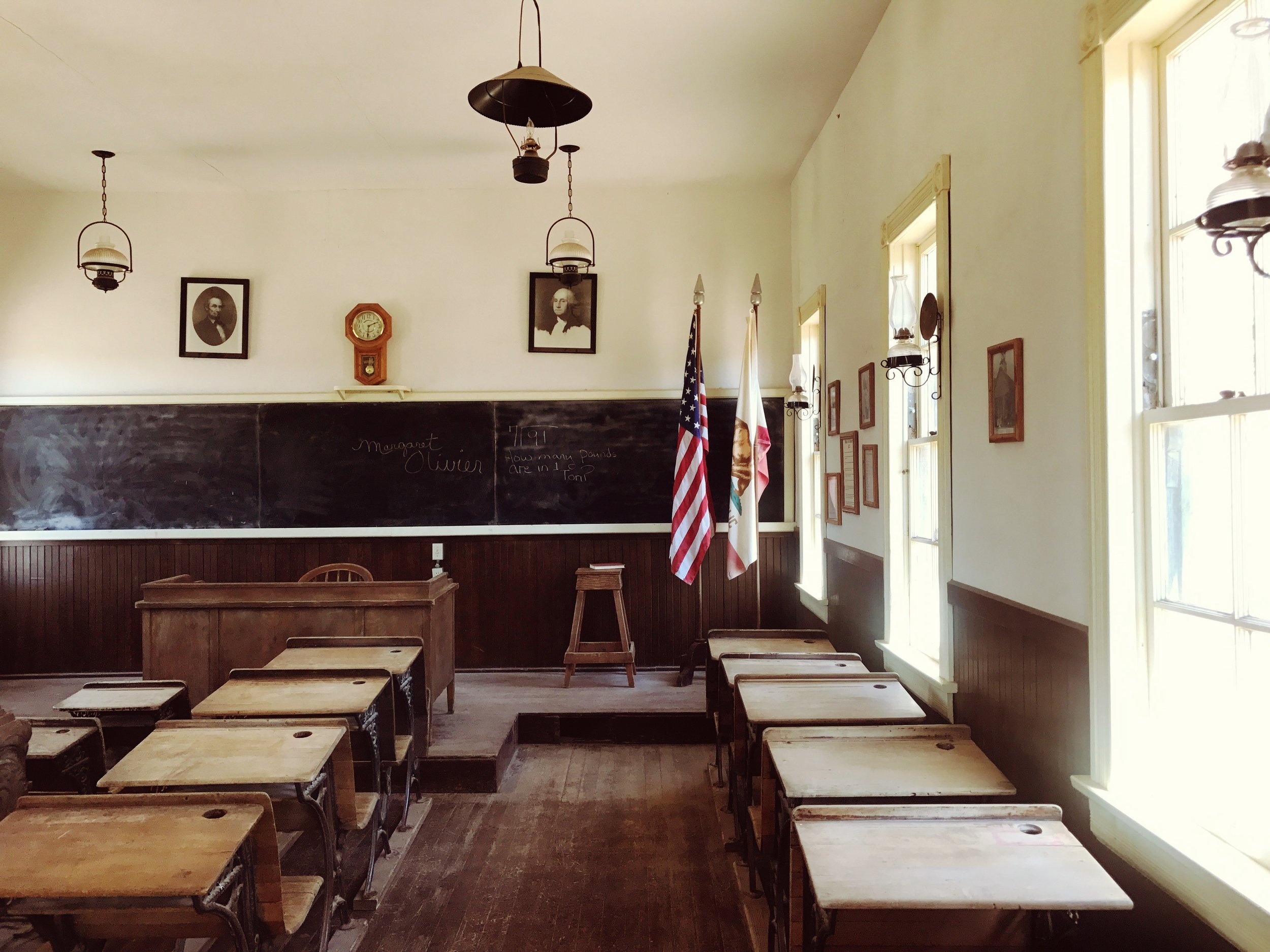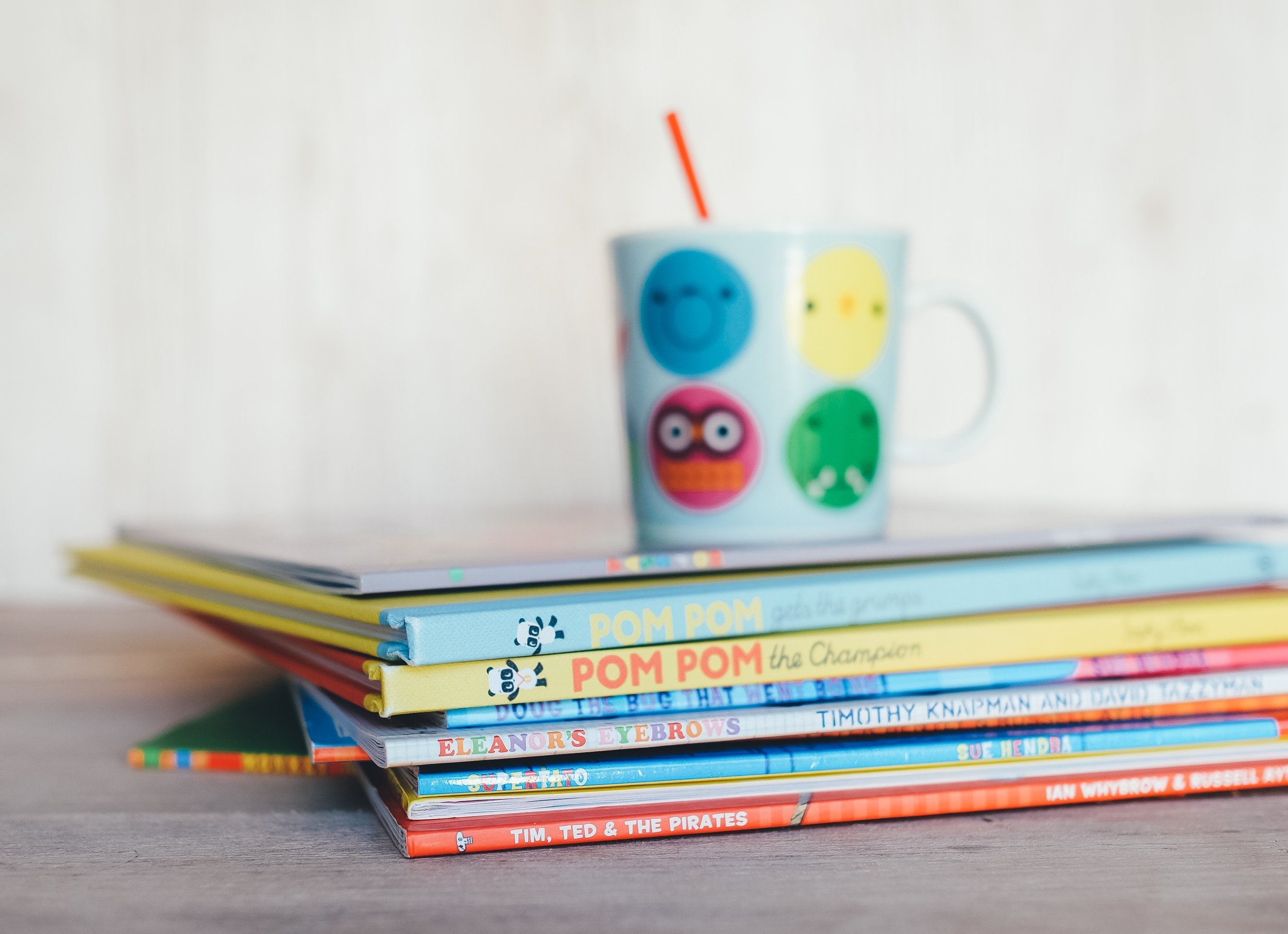
[[bpstrwcotob]]
Explore our content
When You Can’t Afford to Be a “Good” Mom
About eight years ago, our family hit a tough spot financially. I was weeks from delivering our third child when my husband came to me with the numbers; there was simply no more stretching an already stretched budget. We ended up on food stamps and Medicaid.
At first, my faith didn’t waver.
But then things went from bad to worse. As the weeks turned into months and the months to years, I found our financial woes hitting me in a place I’d never expected: motherhood.
To be a ‘good’ mother, culture tells us, you must feed your child organic, locally sourced food. To be a ‘good’ mother, it whispers, you must book a professional photo shoot for each new stage (as well buy new matching outfits.) To be a ‘good’ mother, we hear, you must have the perfectly accessorized nursery. And then as they grow older, to be a ‘good’ mother you must be able to pay for dance, music, and art lessons.
What I remember most about our lean years was the sense of helplessness and guilt I felt While my story may be a bit of an outlier, the desire to care for our children is a universal one.
‘Which of you,’ Jesus asks in Matthew, ‘if your son asks for bread, will give him a stone?’ The heart of every loving parent is to provide good things for our children. So when we’re financially unable to give them ‘bread’, it can strike us to our very core.
As a Father himself, God knows and understands the weight of your mother heart. He knows how desperately you long to give your children good gifts and how much you despair when you can’t.
In the midst of our financial struggles, in the midst of my feelings of helplessness, God was feeding us and carrying my children in his arms. But more than caring for my children, God was also caring for me.
As I led them, he was gently leading me. And part of what he was gently leading me to was the understanding that he never intended for me to care for my children alone.
While I don’t know what the future holds, I do know this: The Lord is my Shepherd and so I shall not want. And because the Lord is my Shepherd, my children won’t want either. He will feed his flock. He will carry the lambs in his arms.
He will gently lead those that are with young.
School Choice as Stewardship
I will never forget the first night I held my daughter in my arms.
After friends and family had come and gone, it was just the three of us—my husband, my daughter and me. In the dimly lit and quiet hospital room, I was lying in the bed studying the face of my swaddled baby girl. And then a thought almost took my breath away. How was I supposed to be the mother and teach this newborn baby the way through all of the decisions and storms of life?
Many of you have prayed a similar gospel-saturated prayer over your child … and many of you have also experienced the same fears and insecurities that I have in this journey of motherhood.
There are so many decisions we face in raising our children. We constantly assess what is good, better, and best for them—sleep training, feeding, disciplining, discipling them, developing their giftings, and schooling.
I have found that a helpful principle in my own decision-making process is to think through the lens of biblical stewardship while gazing closely at the mission of God. As parents, our children are some of the most precious gifts that we have been entrusted to steward and love, not use or keep for ourselves.
We are asked to roll up our sleeves in love and humility and labor towards two hard tasks: (1) help them know and follow Christ, and (2) help to cultivate in them the God-given gifts that he wants to use.
Because we trust an unchanging and faithful God who is still on the Throne, we must find comfort in who he is and commit to do the hard work of planting our children to grow—whether that is in public school, private school, or homeschool—rather than burying them to keep them safe.
As moms, we can find so much freedom in this.
As I send my precious girl into our nearby public school this fall, I know that I will be scared and choking back tears. If you’re in Ann Arbor and reading this, come find me at a local coffee shop and sit with me that morning. No matter the choice you or I make regarding schooling for our children this fall, we both need each other for encouragement and the grace of God to sustain us as we plant our children in the harvest fields of the Kingdom of God.
What Does it Mean to Remember My Identity in Christ?
"Although we’ve had the same food expectations for all of our kids, their tastes and preferences vary wildly. Not long ago, we jokingly nicknamed our twins, “farm-to-table” and our oldest son, “Mickey” (in reference to his love of the McDonald’s cheeseburger). It was all fun and games … for awhile.
.
After a couple of weeks it started affecting their behavior and excitement about different foods. Like when our firstborn pushed away his broccoli—not because he simply didn’t like it—but because he was “Mickey.”
.
This goes to show that what we call ourselves has power.
.
We don’t think of ourselves neutrally, but instead, we see ourselves through the lens of, 'Mary, the angry mom,' or 'Julie, the messy person,' or 'Kayla, the A-type overachiever.' The more we repeat these and believe these labels, the more we live up to them.
.
The power of personal identity is one of main reasons why God spends so much of the Bible telling us who we were created to be, who we are apart from him, and who we are in Christ. These foundational truths are the dot from which all the lines of our life flow.
.
In Genesis, he tells us that we are image bearers, created as males and females, equal in worth but still distinct. As image bearers, we deserve dignity, respect, love, and life.
.
But in Genesis, we also see that Adam and Eve sin. As sinners, we deserve guilt, condemnation, separation from God, and ultimately death. It feels normal for most of us (especially once we’ve heard and believed the gospel) to be horrified and ashamed about this sinful aspect of our identity.
.
If God left us like this—image bearers enslaved to sin—the narrative of our lives would be irredeemable.
.
But he intervenes by sending his son, Jesus, to purchase us at an unimaginably high price so that we could part with our old identity and be raised with him, identified with Christ. Our new identity—in Christ—means that we are redeemed image bearers.
.
From the basis of our new identity in Christ, we love well, we look out for the interests of others, we forgive, we submit, and we pursue peace.
.
God tells us who we are in Christ, not because we have arrived today, but because we will arrive when we meet Christ. The more we believe that—remembering our identity in Christ today—the more we can cast off lies and walk in the way we’ll walk for eternity.
.
So, the next time you hear someone mention your identity in Christ, let it be a reminder that you are a new creation in Christ, which is definitely a label worth remembering."
When We're Offended: The Cost of Being a Peacemaker
He hurt my baby. In an effort to protect his beloved train from her intruding little fingers, the boy reached over and pushed my daughter headfirst into the pointed edge of another toy.
My heart raced with emotion as I swooped her up. Scenes like this are many in the world of children. And though maybe a bit more polished and professional, these interactions are not all that uncommon among the mommies of little ones, as well.
Created in God's image, we detect injustice acutely.
Injustice causes a gap. When a person wrongs us, intentionally or not, a breach in intimacy and connection occurs. Trust is severed. Security threatened.
Whether we discern the gap's existence or not, we sense innately that some act of justice must occur to overcome the divide.
Maybe you know the feeling.
Maybe your husband doesn’t help as much as he should. Maybe your children sling mean words that pierce you with the feeling of rejection as a mother. Maybe another mom in your small group, or your mother-in-law, or your mom always offers you helpful suggestions on how to be a good mom, and you can never measure up to her standards.
Whether words and actions are simply inconsiderate or blatantly intentional, all of us know what it is to be wronged...
We lay down all our defenses because Jesus extends to us forgiveness undeserved.
Forgiveness that cancels our record of debt, our guilty standing, our condemnation. His blood reconciles us to God, inviting us into his presence. Jesus welcomes us when our experience is one of pain, ridicule, or shame. He hears our helpless cries when we choose not to defend ourselves. He whispers to us the most tender and comforting expression of one who's been there: I know.
We forsake giving others the power to stake claim on our identity, and we hide ourselves in this Savior, rather than use our own futile measures to defend our worth and dignity and thus widen the gap.
Members, Not Measures: A Call to Own One Another’s Joys and Sorrows
My husband and I host a weekly small group comprised of eight married couples who are all under the age of 35. At the close of each of our meetings, the girls and guys divide to share more intimately and to pray for one another specifically. Our semester’s praises and prayer requests were all over the map, especially in the realm of fertility and childbearing, and we rarely left our time together without the shedding of tears.
At times I feared that our group would not survive because of the fact that we were walking triggers for one another. We fought feelings of guilt in weeping and feelings of contempt in our rejoicing.
But instead, God caused this community to abound in love for each other. I witnessed the beauty that emerges in the tension when weeping and rejoicing are happening all at once.
We know that just as Christ assigns our roles, he is sovereign over our experiences. We can trust that whether our families are growing or we are in seasons of waiting or mourning, there is nothing that happens outside of his sovereign will, and that he is working all things for our good.
When the tension of weeping and rejoicing is painful and awkward, we must resist the temptation to avoid each other. We must continue to meet together, reminding each other of God’s goodness, and praying for one another.
There’s a reason we are called a body. We need one another.
To Mom Well is to Know Christ Well
We all know that motherhood is so much more than social media showcases. It’s more than the bursts of laughter captured in a well-lit scene, houses that are never messy, walls that are never sticky, and hot steaming coffee that magically appears in bed next to a sleeping babe.
Some of the most genuine frames of motherhood are those you cannot capture. I’m talking about the early morning wake-up to hold up your daughter’s hair as she battles a stomach bug. Or the Holy Spirit-given fruit of patience budding in you as you break up sibling rivalry for the fifth time this week.
Social media is not wrong in and of itself, but for many, it may be the water needed to grow seeds of comparison, discontent, and envy. Today alone you probably learned where Sarah just traveled, and what an awesome mom Jane is for feeding her child steel cut oats and kale daily. With every scroll and every click we are depositing some knowledge into our brains, and what fills our minds will direct our thought life and actions.
Sometimes we just need that simple reminder that true joy doesn’t exist apart from Jesus.
The bottom line is this: forego the fairytale picture of mom-ing so many project through the screen, because this will not sustain you in the trenches of motherhood. If we want to mom well, we need to know Christ well, because it is He who has the power to transform us, our homes, and one another.
For the Mom Who Feels Helpless
The truth is: we may sometimes feel helpless in motherhood, but because of Christ, we will never be hopeless.
You’re a Theologian...But Are You a Good One?
'Theology' can be an intimidating word. For many of us, it calls to mind professors, pastors, or academics tirelessly pouring over ancient books. But it actually means 'the study of God.' So, momma, you're a theologian, and believe it or not, you're raising tiny theologians in your home.
Every day the world around us affects our kids' theology – the shows they watch, the books they read, and the neighbors they play with are all teaching them something about God, his relationship to his people, and his world.
So, the question isn't, 'Are our children theologians?' But instead, 'Have we taken the time to teach them to be good ones?'
Thankfully, God has equipped every one of us to be a student of his word! Each of us – you and me and even our tiny theologians – are able to come to the word of God, to study it with joy and understanding, and to share those rich truths with one other.
Momma, we have the honor and joy of joining with God in the process of raising tiny theologians. Let's teach!
Loving the Mom Who Is Different from Me
While motherhood often brings women together, it can also highlight differences that challenge our love for one another. More than ever before, in this world of Motherhood-by-Instagram, opportunities abound for comparison, criticism, and misunderstandings.
Quite often I’m tempted to judge or criticize a mom who parents differently than I do, feeds her kids healthier than I do, prioritizes her family better than I do, keeps house better than I do, or exercises more than I do. If I find some fault in her, I am less apt to feel inferior in comparison to her...
But the message of the Gospel intersects all my sinful heart attitudes: "Welcome one another as Christ has welcomed you".
Because of what Christ did for me, loving me to the cross while I was still his enemy, my identity in him is a foundation for loving unity toward other women, even and especially toward the mom who is different from me.
Dads Hurt Too: A Father’s Memoir of Miscarriage
Are not two sparrows sold for a penny? And not one of them will fall to the ground apart from your Father.” “But even the hairs of your head are all numbered,” Jesus assures us. “Fear not, therefore; you are of more value than many sparrows.” The argument here is not: people matter, therefore sparrows are insignificant. Rather: sparrows are significant, so how much more valuable are those created in God’s image?
God’s voice—not the voices in my head or those of my neighbor—is the final word on the matter: If he values the hairs of my head more than sparrows, how much more must he care for my child—his own image bearer?
And when that child falls to sleep, hidden in my wife’s womb, will the Father in heaven not notice the father on earth? God cares for these little ones. God cares about mothers. God cares about fathers. Both moms and dads have every right to mourn.
I AM Who I AM
As moms, we hold our tiny, new babies and wonder what they might do in their lives, what their giggles may sound like, who they may marry, and if they’ll live near to or far from us one day. We dream and we hope from our cultural understanding of a productive or contributive life.
Once we become a mom of a child with special needs, we are often reassured by others of the unexpected achievements, or performance, that may await. Our children with special needs may speak and write, act or compete in sporting activities...But is that the basis of their value and their worth? And what happens when they don't, or indeed can't?
...
To be a human being is to carry what C. S. Lewis called 'the weight of glory,' the imprint of the 'I AM who I AM' God. We will never meet, talk to, or care for a mere mortal...We have value not because of what we do, but because of who we are, and whose we are.
So we look towards the one who made our children in his beautiful image. We find the hope and standard of worth in the words of the Almighty.
Bridges of Grace: Dealing with the Different Momma
Do you build walls of division within your church?
I know what you are thinking—"No! I warmly greet anyone who I pass walking down the halls of my church." But… what about your small group? How unified are you when someone shares an opinion on a matter of preference with which you disagree? What do you do when someone is different than you?
As we draw near to our sister, are we supposed to forget our differences? No! We are to use them to build up our sisters in Christ. God gives us unique schools of circumstances that are meant to cultivate new knowledge of Him—whether it is singleness, infertility, aging parents, financial difficulty, or illness.
However, rather than building a wall because of difference with your sister, build a bridge because of grace. After listening to your sister’s struggle, consider how Christ has ministered to both of you in similar ways. From that place of humility and common ground, be a caring sister and tenderly apply truths of the gospel that you have learned in your school of circumstance to your hurting sister’s heart.
Our differences do not have to divide. We can build bridges of grace rather than walls of division... . And, we would get front row seats in witnessing the power of the gospel transform the lives of those we love… even in the midst of our differences.
Where to Next?
We podcast too
You don’t have to live with fear in motherhood.
Tune into our Fear mini-series, where we discuss the hope the gospel gives when motherhood feels scary.
All the freebies, just for you.
Ready to be intentional in your prayer life?
Get our free prayer resource with thirty days of prayer prompts for mom and fun activities to teach your children too.
We’re a nonprofit
All our content is free because of moms like you!
Want to help Risen Motherhood keep creating the content you know and love? Give now.

















